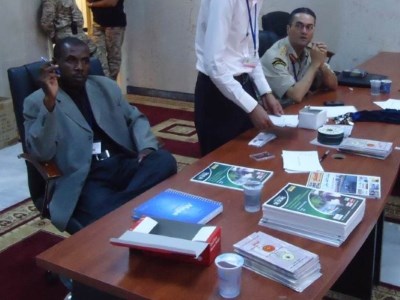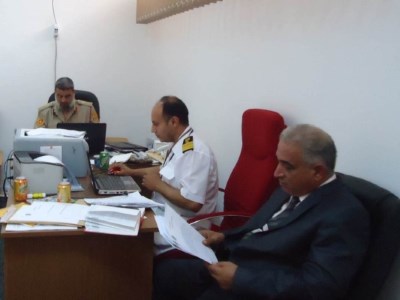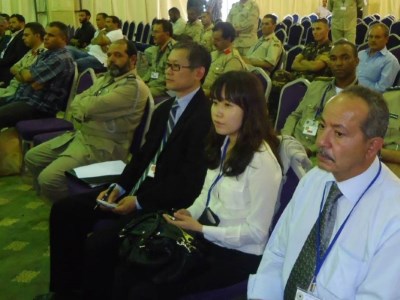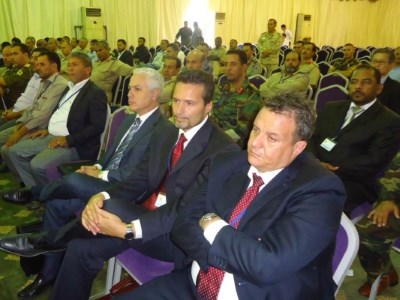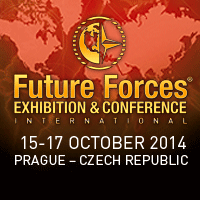 The FUTURE FORCES 2014 international exhibition-cum-conference, which is the largest meeting of defence and security experts this year, is quickly approaching. The accompanying programme of the event, which will take place in Prague, Czech Republic between October 15 and 17, 2014,
The FUTURE FORCES 2014 international exhibition-cum-conference, which is the largest meeting of defence and security experts this year, is quickly approaching. The accompanying programme of the event, which will take place in Prague, Czech Republic between October 15 and 17, 2014,
will include, inter alia, the Future Crises conference focusing on the most topical issues and future trends in the field of cyber security, and four specialized two-day workshops the themes of which reflect the latest requirements and future developments in the segments of the 21st century soldier, protection against CBRN attacks, logistics and unmanned ground and aerial vehicles. Exhibitors and visitors will thus have an opportunity to get acquainted with the latest trends over a broad spectrum of issues.
The Future Crises Conference is designed as a platform for sharing information, news, international strategies and national approaches for the purpose of being ready to cope with increasingly frequent cyber attacks. Cyber security is a hot topic not just from the viewpoint of protection of critical infrastructure elements; it is becoming increasingly important for police forces all over the world, which improve and enhance their capabilities to fight against this type of crime. World-renowned experts, including Robin “Montana” Williams, Director of the National Cybersecurity Education & Awareness Branch of the US Department of Homeland Security, or Ernest L. McDuffle of the Lead for the National Initiative for Cybersecurity Education (NICE);National Institute of Standards and Technology (NIST), will share their experience and strategic outlooks.
In addition to the exhibition and conference, visitors will also have an opportunity to attend four specialized workshops. The Open NATO Future Soldier Workshop will present requirements of armies for future equipment based on lessons learned in recent peace-keeping and –enforcing missions, as well as the latest results of applied research and development in troops’ protection, equipment, armament and training. Experts in weapon systems, optics, electronics, communication systems or hi-tech durable smart materials used in the soldier’s equipment or for camouflaging purposes will take part in the workshop. Those participating in the workshop will hear, inter alia, about requirements applying to functionality, testing and future uses of innovative textile materials expanding the scope of efficient protection. Speakers will include, for example, Brigadier William E. Cole, US Army Natick Soldier Systems Center/ARDEC, as well as managers of future soldier projects going on in different countries, such as FUTURE WARRIOR (USA), TYTAN (Poland), GLADIUS (Germany) or VOSS (The Netherlands).
The Open NATO CBRN Workshop will be a unique opportunity to share and exchange lessons learned and information concerning current trends and needs in the field of prevention of and protection against chemical, biological, radiological and nuclear (CBRN) attacks. Confirmed speakers will include, for example, representatives of the NATO Support Agency (NSPA), EUROPOL, United Nations and other international organizations. The workshop will present many practical topics related to CBRN defence, including potential threats arising from the use of weapons of mass destruction not only in the theatre of military operations, but also by terrorists in major civilian population centers.
The third part of the specialized programme will be the Unmanned Systems Workshop, which will focus on unmanned ground and aerial vehicles, robotic, autonomous and automated systems and future combat tactics involving the use of these assets. Top experts in this dynamically developing sector will discuss the latest elements of autonomous unmanned vehicles for both military and civilian applications; in addition to their technical capabilities, they will also touch upon no less important ethical, psychological and legal aspects of their use. Participants in the workshop will have a unique opportunity to meet one of the leading experts in this field, Professor Ronald C. Arkin of the US Georgia Institute of Technology. Professor Arkin is a great advocate of the deployment of robotic assets in combat operations, especially because of their efficiency resulting from their extremely rapid reaction and precision strike capability, which reduce both military and civilian casualties on the battlefield. Other outstanding speakers will include, for example, Paul Scharre, a US Department of Defense expert on the armed forces development expert and Professor Agostino Bruzzone, NATO CMRE (Centre for Maritime Research and Experimentation).
The Capable Logistician Workshop is being organized in close cooperation with the Multinational Logistic Coordination Centre (MLCC) and under the auspices of Admiral Donald L. Singleton, Chairman of the Board of MLCC and also Director of Logistics of the US European Command (EUCOM). The workshop is focused mainly on issues related to the harmonization of procedures of providing logistic support to combat units taking part in operations of the Alliance and its partners. The participants will be able to exchange their views on and experience in, for example, resupply, transport and storage of POLs, water and ammunition. Attention will also be paid to transport and storage equipment and its capabilities, efficient use of energies or overall infrastructure of logistic support arrangements. Other topics will include, for example, OGFAS, Movement Control, Helicopter Operations, Asset Tracking etc.
Visit www.natoexhibition.org or contact the organizers at This email address is being protected from spambots. You need JavaScript enabled to view it. to obtain detailed information about the event and its accompanying programme.








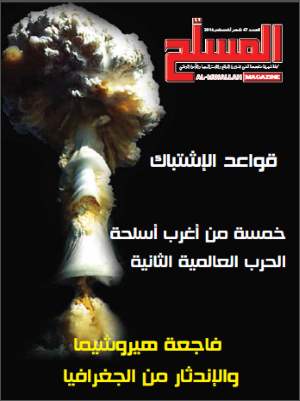
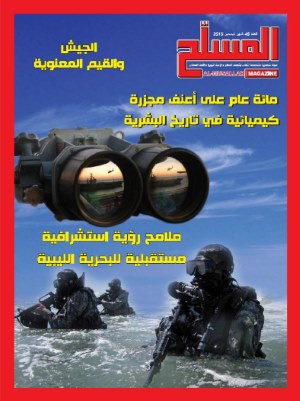
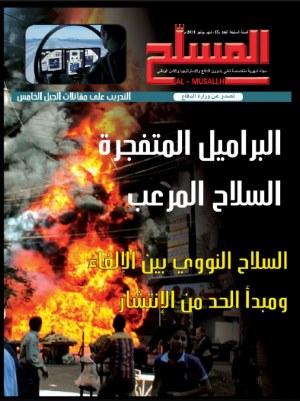
 English
English  العربية
العربية 

